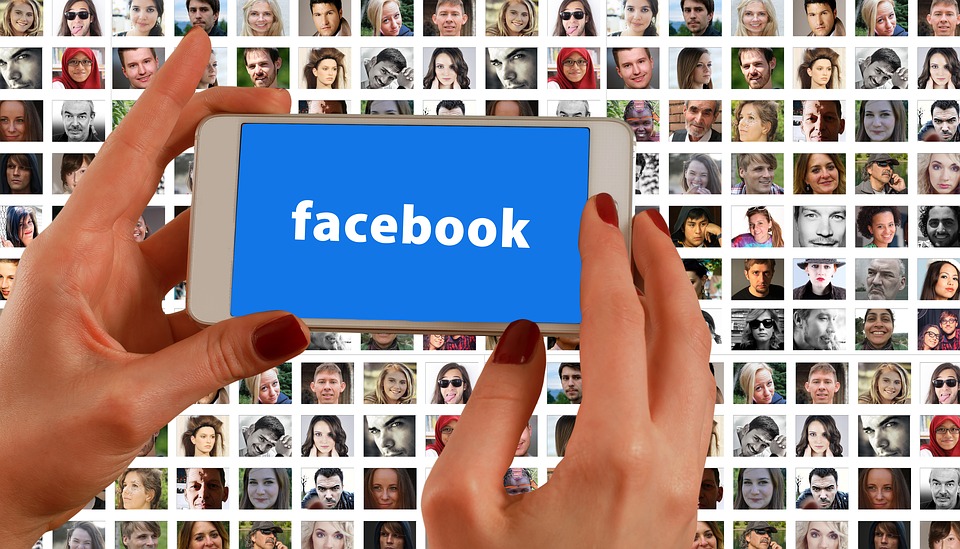by Justin Rojeski
The air is filled with lovely aromas of turkey, yams, and cornbread as I walk into my parents’ house for Thanksgiving dinner. Perhaps even more exciting than the meal in which I am about to enjoy is how important this dinner is: this is the first time my wife’s family will be sitting down for a meal with my family. I take a seat in the living room and wait for the remaining guests to arrive. There’s a knock at the door and all 12 of my wife’s family members enter. We make ourselves comfortable in the living room as we wait for the table to be set. As I look around the room, thankful for the company, I notice that every single person is staring at their cell phone screen. “Everybody will put their cell phones away for dinner and then we can all talk,” I think to myself hopefully.
With access to every new social media site and every new app on the smartphone, we are slowly destroying personal communication because we have become more reliant on technology than on each other for social interaction. In a study conducted by UCLA a group of 6th graders were shown a video without audio and asked to interpret the emotions of the actors based on facial expressions and body language. After the pretest, half the group was sent away to camp to do activities such as hiking and , while the other half continued with their daily routines spending, on average, 4 and a half hours a day accessing digital media. After a week the students were brought back and given the same test. The students who attended camp showed significant improvement while the other students only slightly improved. (Morin, 2014)
Natalie Bencivenga, an editor for the Pittsburg Post-Gazette, observes: “We feel such a disconnect from one another with our cold little weapons in hand, that the sting doesn’t seem to hurt as bad receiving or sending out those types of messages. It’s easier to break up via email than it is to look anyone in the eye and tell them it just isn’t working anymore” (Bencivenga, 2010). What she is saying is that today’s society uses technology as opposed to face-to-face interaction, which allows us to distance ourselves from difficult situations at our convenience. This does not mean the hurt is not real on the other end of the line though. Our reliance on technology to convey these difficult messages is destroying society. Couples will distance themselves during an argument and take to their cell phones to go to war with hurtful messages rather than sit face to face and talk out problems. This sort of isolation from feelings and personal communication is not only limited to arguments and break ups.
Jenna Wortham, a writer for the New York Times, claims: “I’ve had some of my most emotionally intimate and honest conversations with friends and romantic partners on mobile devices. And while virtual chats and hugs will never be the same as their real-world counterparts, they can come awfully close in a pinch.” What she is claiming is that chatting on Skype or a similar app can be just as personal as face to face interactions. The most important part of this claim is the tail end of the statement: “in a pinch.” The only problem with that is that society has become reliant on these apps and rush to the cell phone to Facetime a friend who you could walk 5 blocks to go see face to face. The trend is to use these apps in replacement of face to face interaction rather than in supplement.
The impact on society from digital technology is right in front of us yet most of us don’t recognize it. Friends get together and share things they find on their newsfeed or take pictures together to post on social media. Everything revolves around social media and digital technology these days. In fact, robots have been developed to converse with people and give them something to vent to during times of hardship.
Sherry Turkle discusses in her TED talk her time spent observing one of these “sociable robots” comforting an elderly woman who lost a child. Turkle admits, “and as that woman took comfort in her robot companion, I didn’t find it amazing; I found it one of the most wrenching, complicated moments in my 15 years of work. But when I stepped back, I felt myself at the cold, hard center of a perfect storm. We expect more from technology and less from each other” (Turkle, 2012). What she is saying is that as technology develops and becomes more advanced it replaces social expectations. Rather than show up at the retirement home to visit your mother you can now buy one of these sociable robots to keep her company, and while that sounds like a terrible thing to do to your mother the fact is that we have allowed technology to develop to this point.
Social interaction isn’t the only casualty of the rise of digital technology. Depression and suicide rates are on the rise. Some will associate this with a variety of excuses like the wars in Iraq and Afghanistan, the recession, and drugs or alcohol. But at the core of suicidal thoughts and depression are the feeling of loneliness or not being understood. I think it is no coincidence that depression and suicide are on the rise at the same time as the boom in social media technologies. We have become so detached from family and friends and so attached to our Facebook pages that, before long, either we ourselves have felt depressed or we have someone we care very deeply for who feels that way. Suicide is preventable in some cases because there are warning signs. But to notice the warning signs in people we care about we need to rekindle that attachment to each other rather than technology.
The information I have provided might be depressing in itself but there are things we can do to prevent the hole from being dug too deep. Dedicating time at home to unplug and enjoy each other’s company is a great way to start. Alternatively, you can establish areas of the house where cell phones are off limits such as the dining room table or the bedroom. Enjoying each other’s company during dinner or having a before-bed chat are great ways to start off small in the war to win back your relationships. As time goes on and the routine becomes easier, introduce longer timeframes unplugged or more zones of the house cell phone free and it will become easier and easier until you have gotten to a point where you no longer need to stare at a screen in the presence of loved ones.
Another solution is to stop supporting these social media and app crazes. We live in a consumer-driven economy and many companies are taking advantage of our reliance on these technologies. If we collectively decide to stop buying in to these online dating sites, and date the old fashion way, or decide to drive to visit our moms and dads rather than Facetime, the demand for these services will die off and be followed shortly after by the supply. If hundreds of thousands can rally for all the miscellaneous movements currently out there surely we can rally for something as important as saving our society from social media.
I’m sure that many of you may think that a movement to rid ourselves of social media attachment sounds farfetched, especially given the fact that social media drives a lot of movements today. But I can certainly hope that a movement is possible and I can only hope that others share this sentiment. Unplugging at home is a solution that’s a no-brainer though. All that is required is a little bit of dedication for a good cause: our loved ones. Currently I know of at least one company promoting this idea. Cabela’s, an outdoor recreation chain of stores, promotes unplugging and enjoying the outdoors by offering anybody willing to take the pledge a free survival bracelet. Trivial as it may seem the good intentions are there and at the very least Cabela’s is promoting unplugging devices and enjoying life.
Although Cabela’s has taken a stand against technology the task is not as easy for the rest of us as I found out during my Thanksgiving dinner. I begin to salivate as I watched the platters of food get placed on the table. After the table was set, the family swarmed the table, but not to grab food. Instead flashes came from cell phones as the family took pictures to share on Facebook and Instagram. My wife and I dished up plates for the kids, as most of the others sat down to post the pictures they took. The only time I noticed that cell phones were being put down was so the family could put food in their mouths. I asked my wife to tell her family to put their phones away, but to no avail. There were occasional conversations, but for the most part all that was heard was the chewing of food and the clicking of cellphone keyboards.
References
Bencivenga, N. (2010, June 28). Has Technology Ruined Our Ability To Communicate? Retrieved from Huffington Post: http://www.huffingtonpost.com/natalie-bencivenga/has-technology-ruined-our_b_625302.html
Morin, A. (2014, August 26). Is Technology Ruining Our Ability To Read Emotions? Study Says Yes. Retrieved from Forbes: http://www.forbes.com/sites/amymorin/2014/08/26/is-technology-ruining-our-ability-to-read-emotions-study-says-yes/
Turkle, S. (2012, February). Connected, but alone? Retrieved from TED Talks: https://www.ted.com/talks/sherry_turkle_alone_together/transcript?language=en
Wortham, J. (2014). I Had a Nice Time with You Tonight. On the App. New York Times.
[divider]





